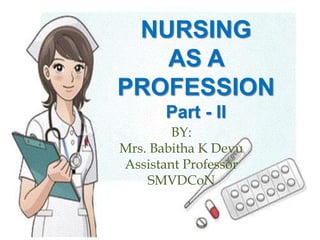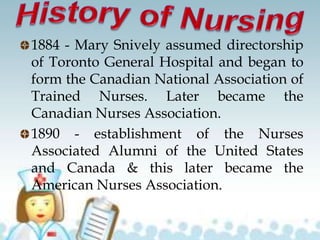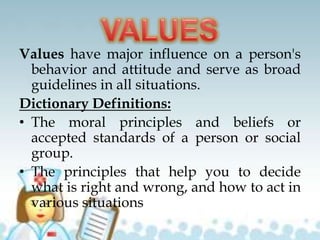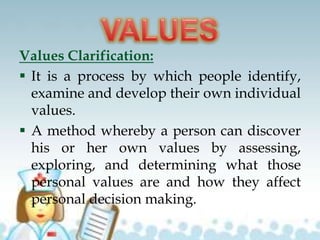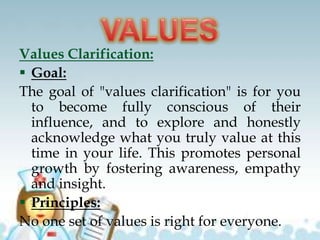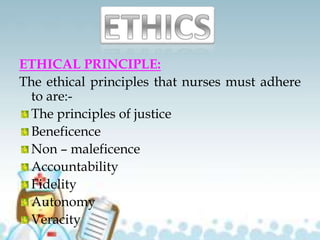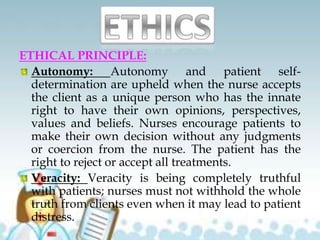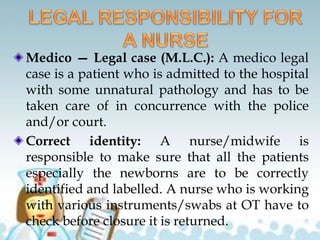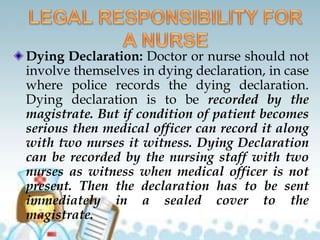The document outlines the evolution of nursing as a profession, tracing its origins from ancient times where nursing was largely linked to societal beliefs about illness. Key milestones from the establishment of the first nursing schools in India to the modern era of nursing education are highlighted, alongside the significant contributions of pioneers like Florence Nightingale. It also discusses the role of values in nursing, emphasizing professional values such as altruism, integrity, and social justice as foundational principles guiding nursing practice.
